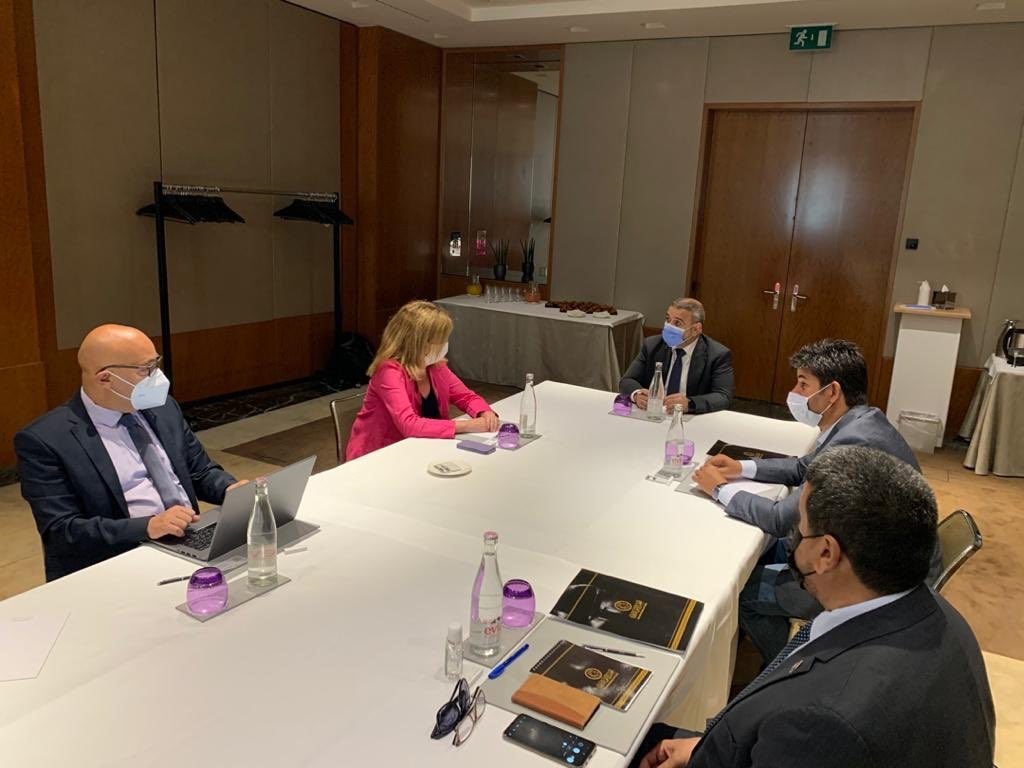Ceasefires in Libya Declared
Prime Minister of the Libyan Government of National Accord, Fayez al-Sarraj, announced today a ceasefire for all GNA military forces throughout Libya. The GNA has since released the text of the ceasefire declaration on their social media pages.
According to the text of the ceasefire declaration, the ceasefire is intended to regain sovereignty and “expel foreign militaries and mercenaries”. All military forces in Libya are to abide by the ceasefire, and any ongoing military operations will be halted. The demilitarization of the districts of Sirte and Jufra is stated to be a prerequisite for the ceasefire, with a security apparatus for the districts to be created through an agreement between GNA police forces and those of warlord Khalifa Haftar.
The ceasefire declaration calls for the resumption of oil exports as well, with revenue from the exports to go to the National Oil Corporation’s bank account at the Libyan Foreign Bank, not to be disbursed until a political agreement is reached under the auspices of the Berlin Process. Libya’s oil exports have been blockaded by Haftar-aligned tribes since the beginning of this year in a bid to starve the GNA of oil revenue.
Additionally, the ceasefire declaration calls for presidential and parliamentary elections to be held by March 2021.
The announcement was soon followed by another ceasefire declaration from Aguila Saleh, Speaker of the Tobruk House of Representatives and a key political ally of Haftar. The text of Saleh’s declaration was largely identical to the GNA’s declaration, with the exception that it “requested” a ceasefire instead of announcing that one was in effect. The Saleh declaration also called for Sirte to become the provisional seat of a new Presidential Council, with a joint police force for the area to be formed.
The ceasefire declarations were welcomed by the United Nations Support Mission In Libya, with the Acting Special Representative of the Secretary-General for Libya, Stephanie Williams, calling on all parties to “rise to this historic occasion and shoulder their full responsibilities before the Libyan people”, noting that “the two initiatives have created hope for forging a peaceful political solution to the longstanding Libyan crisis, a solution that will affirm the desire of the Libyan people to live in peace and dignity”. The German Foreign Minister, Heiko Maas, commended the statements as a “solid base towards a lasting ceasefire and lifting of the oil blockade”, calling on all parties to “work constructively” towards their implementation.
The ceasefire declarations come as fighting has largely dropped off between GNA and Haftar’s forces, with the GNA consolidating manpower for a push into Sirte and Jufra after driving Haftar’s forces out of Tripoli, and Haftar’s forces heavily mining both areas. While the ceasefire declarations seem to be offering an opportunity to avoid a bloody fight for Libya’s main oil production area, Haftar has yet to comment on the declarations, raising the questions of whether the ceasefire will hold, or indeed be over before it even began.

